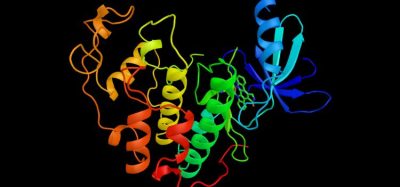Drug combination may become new standard treatment for advanced kidney cancer
Posted: 18 February 2019 | European Pharmaceutical Review | No comments yet
Immunotherapy drug plus targeted agent provided better progression-free survival and shrank tumors in more patients than standard one-drug treatment…


Results of a phase III trial suggest that a combination of two drugs could become a new standard, first-line treatment for patients with metastatic kidney cancer.
Patients who received the immunotherapy drug avelumab plus axitinib, a targeted agent, had a significant advantage in progression-free survival compared with those who received sunitinib (Sutent), a targeted drug that has been a standard treatment for advanced clear cell renal cell carcinoma – the most common form of kidney cancer.
“Patients receiving the drug combination also had a higher response rate – meaning their tumours shrank – than the sunitinib-only group,” said Toni K. Choueiri, MD, senior and co-corresponding author of the report on the JAVELIN Renal 101 trial in the New England Journal of Medicine and Director of the Lank Center for Genitourinary Oncology at Dana-Farber.
While progression-free survival was improved with the combination treatment, additional follow-up is needed to show whether the two-drug therapy extends overall survival compared to the standard regimen, the authors say.
The trial is the first pivotal study to combine avelumab with a drug that targets the vascular endothelial growth factor receptor (VEGFR). VEGFR blockers like sunitinib and axitinib are designed to starve tumors by disrupting their blood supply. Immunotherapy drugs such as avelumab – which blocks an immune checkpoint called PD-L1 – work by activating “exhausted” immune T cells so they can more effectively attack cancer cells.
The clinical trial involved 886 patients with previously untreated, advanced renal cell carcinoma who were randomised to receive the drug combination or sunitinib alone.
The results from the study showed that the median progression-free survival (PFS) – the length of time before the cancer began to worsen – was 13.8 months in the combination group and 7.2 months in patients receiving only sunitinib. These results specifically applied to patients whose cancer cells tested positive for the PD-L1 checkpoint that is blocked by avelumab. The PFS for the overall population (PD-L1 positive or negative) was similar – 13.8 months versus 8.4 months.
The proportion of patients whose tumours shrank was 55.2 percent with avelumab plus axitinib and 25.5 percent with sunitinib in the patients who were positive for PD-L1.
“Interestingly, the analysis showed that all subgroups – good, intermediate, and poor-risk patient – benefited from the combination treatment,” said Choueiri.
Nearly all patients in both treatment groups experienced some side effects. In the combination treatment group, 38.2 percent of patients experienced immune-related adverse events, the most frequent being thyroid disorders, observed in 107 patients.
Choueiri said that for patients with advanced disease, “this is an important option. What we’re doing in advanced kidney cancers is pushing the envelope – these treatments may not be curative, but patients are living longer, and the disease is becoming more chronic.”









